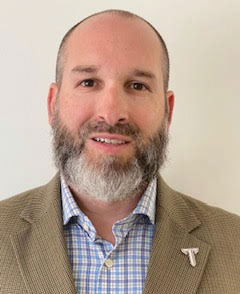CPAP providers: Could that be a light at the end of the tunnel?

By Theresa Flaherty, Managing Editor
Updated 12:06 PM CDT, Fri September 23, 2022
 YARMOUTH, Maine – CPAP providers are seeing a slow rebound in business as a chokehold on orders for devices eases up, but they continue to see increased costs.
YARMOUTH, Maine – CPAP providers are seeing a slow rebound in business as a chokehold on orders for devices eases up, but they continue to see increased costs.
For more than a year, providers have juggled the challenges of a recall of certain CPAP devices by Philips and a subsequent shortage of available devices on the market with overall supply chain challenges affecting all manufacturers.
“Looking at my numbers from April to August, we’ve set up more CPAPs during that time than all of last year,” said Jason Jones, president of Jones Medical Supply in Troy, Ala. “We’ve worked through our backlog, and we worked through backlogs for other providers in neighboring cities as patients drive to us. We’re back to normal and then some.”
Provider Robert Beard is also enjoying a more normal flow to his CPAP business.
“I’ve always been a just-in-time ordering company and am now getting orders in three or four weeks – better than it was six months ago,” said Beard, owner of YD Home Medical in York, Ala.
However, “normal” is a relative term these days. Providers have had to change how they order, who they order from and what devices they can use for setups. Provider Eric Mongeau has sourced CPAP devices from different manufacturers, including factory-direct from overseas to get through the worst of the backlog.
“I think that the new normal is going to be different, and we’ll be going to be multiple players,” said Mongeau, national sales director for Aeroflow. “I don’t know that we’ll ever be in a world with a duopoly (with Philips and ResMed) again and I think that’s a good thing.”
Many improvements in the market have also come at an increased cost, providers say.
“The newer players in the device market are not offering the same level of payment terms or flexible programming, so all of our costs are higher, both cost-of-goods and operational costs,” said Mongeau.
Beard says he’s especially disappointed to be hit with surcharges per machine vs. per shipment, which has pushed his cost per unit about $100 higher than it was pre-COVID.
“The costs are eating us alive,” he said. “That’s almost three months of rental that just got eaten up and we’re still being paid based on a predetermined fee schedule set from Medicare and private insurers.”
Comments